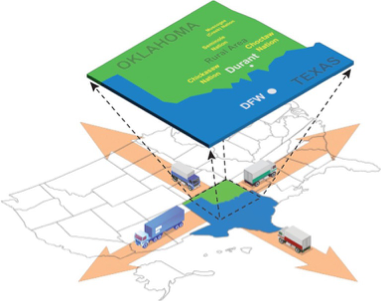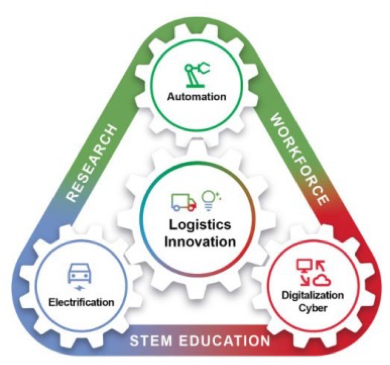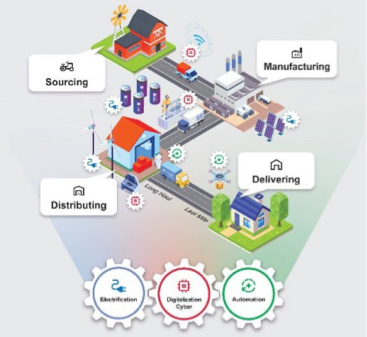Name of Award: NSF Engines: Type 1: An Inclusive Innovation Ecosystem and Economic Development Engine for Transforming North Central Texas and Southern Oklahoma Logistics Industry
Vision
The Regional Innovation Development Award is focused on developing an inclusive innovation ecosystem and economic development engine for logistics in the Texoma region. This engine will transform innovation deserts in the region into strong economic contributors and generators of high-quality employment opportunities through diversity, equity, and inclusion strategies that establish an institutionalized collaborative network of universities, colleges, schools, public agencies, industries, and economic and workforce development agencies.
Overarching Goal
Advance the logistics industry as an economic driver in the Texoma Region by supporting use-inspired research, logistics innovation, and expediting laboratory-to-market technology transfer.
Service Region
The region of service includes 26 counties in North Texas and in Southeastern Oklahoma. Logistics represents the second largest business sector with over 889 million tons valued at $1.1 trillion moving through the region and employing over 450,000 workers. Similar to the national economy, the region is experiencing a significant shortfall in skilled labor. In June 2022, over 500,000 logistics job openings existed nationally with the driver shortfall alone at over 80,000. As the second largest industrial and fourth largest freight market, these shortages are particularly pronounced in the region.

Innovation and Technology Hubs
The Engine will solicit use-inspired projects from the logistics community and address through research hubs located in disadvantaged areas to translate emerging technologies into innovative systems, practice and workforce development programs. These hubs will conceptualize new products and services, incubate start-ups, and facilitate commercialization. The Engine incorporates three major technical thrusts: autonomy, electrification and cyber. Autonomy integrates autonomous systems into logistics networks by generating innovations in surveillance/sending, computer vision, collision-avoidance, object tracking, and smart city technologies. Cyber advances the technologies necessary for integrating logistics functions, data, and software across the supply chain including artificial intelligence, machine learning, block chain, cybersecurity, optimization, and digital twins. Electrification facilitates sustainable logistics processes by promoting innovations in renewable energy generation and microgrids, energy storage, battery technologies, hydrogen fuels, on-the-move EV wireless charging, energy harvesting, and grid resilience. Workforce development overlays each of the thrusts, and the Engine will closely collaborate with regional workforce development organizations to plan and develop new education vehicles and to integrate these innovations and industry input into workforce training programs. The Regional Innovation Development Award enables the creation of the Engine by promoting collaboration across universities, government and non-government entities, and logistics companies throughout the region and by providing the support essential for creating the research hubs.



